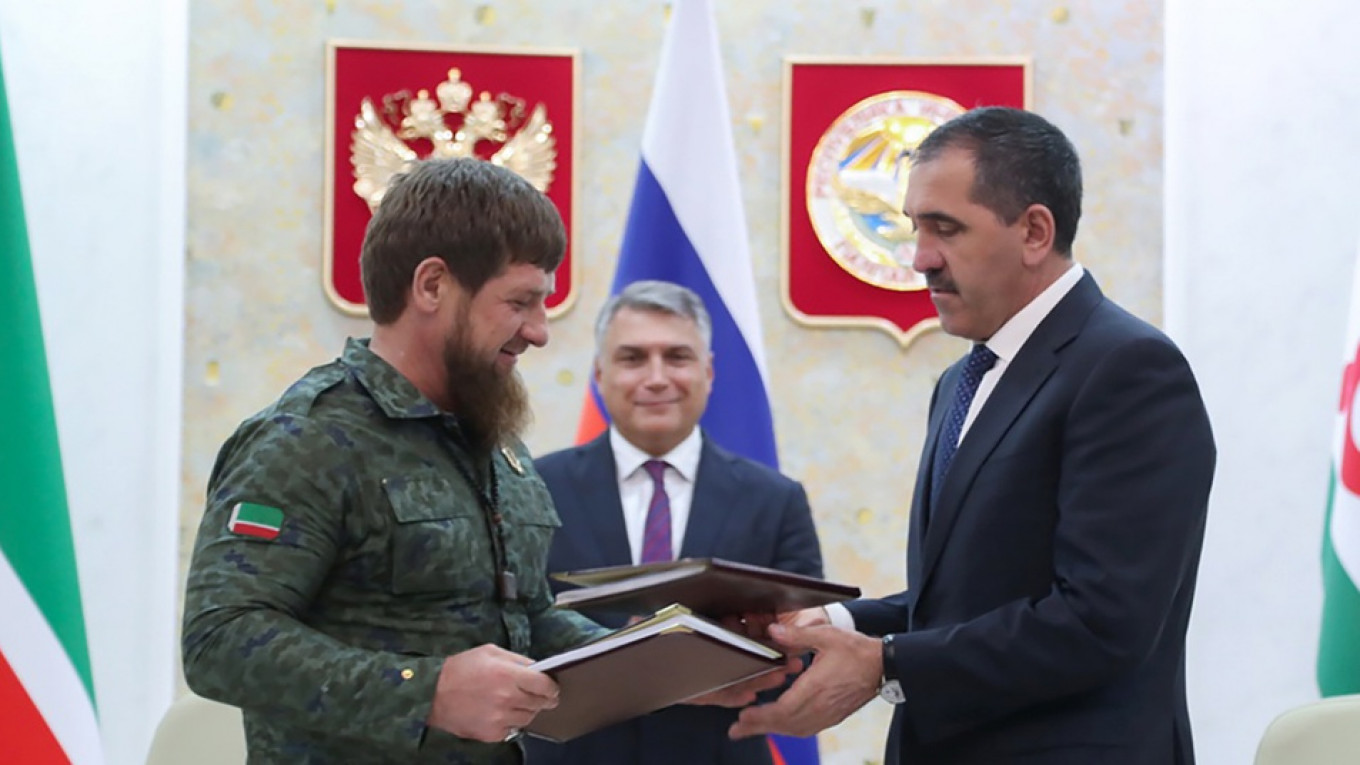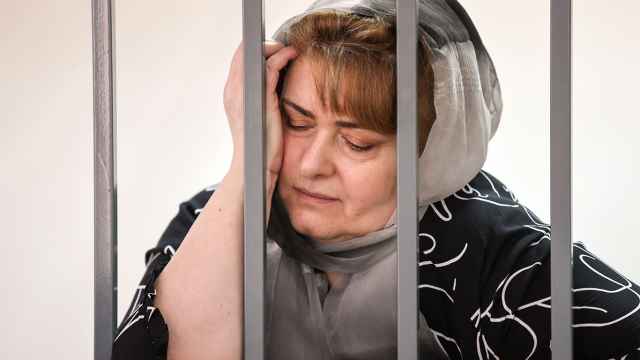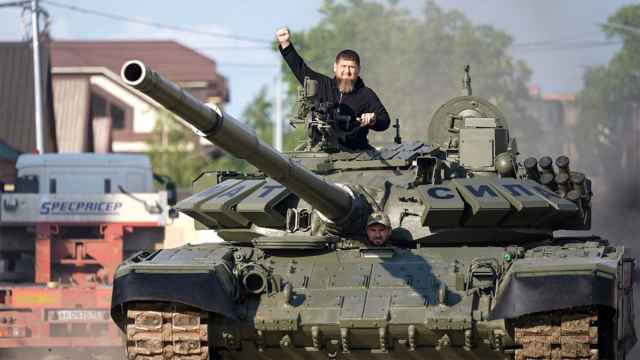An agreement to draw up borders between the Russian republics of Chechnya and Ingushetia has sparked protests in the volatile North Caucasus region, according to local media.
Chechnya had laid claims to parts of eastern Ingushetia since the the former Chechen-Ingush Soviet republic split into two in the early 1990s. Despite a 2003 deal handing two villages to Chechnya, Chechen leader Ramzan Kadyrov implied in later years that he wanted more ethnic Chechen settlements inside Ingushetia to join his republic.
On Wednesday, Kadyrov and Ingushetia’s Yunus-Bek Yevkurov signed a deal on the “equivalent exchange” of two unpopulated areas, Interfax reported. Kadyrov later told the agency that “both republics won” in the exchange.
“The only adjustments we made were in the plains, where we yielded exactly a square for a square, a meter for a meter to each other,” Yevkurov was quoted as saying by the state-run TASS news agency.
Local media reported that at least 100 people gathered in the Ingush capital of Magas in the run-up to Kadyrov and Yevkurov’s meeting to protest against the land exchange.
Roadblocks were set up and police and National Guard troop presence was reinforced in anticipation of the protest, according to the Kavkaz-uzel.eu news website.
Law enforcement authorities used batons in carrying out detentions in Magas, the Kavkaz.Realii news website said.
Small protests were also reported in the town of Sunzha near the Chechen border.
Kremlin spokesman Dmitry Peskov said President Vladimir Putin had been informed about “the internal tensions,” but said it was premature to “make any diagnoses.”
Both regions have for years been plagued by Islamic insurgent violence.
A Message from The Moscow Times:
Dear readers,
We are facing unprecedented challenges. Russia's Prosecutor General's Office has designated The Moscow Times as an "undesirable" organization, criminalizing our work and putting our staff at risk of prosecution. This follows our earlier unjust labeling as a "foreign agent."
These actions are direct attempts to silence independent journalism in Russia. The authorities claim our work "discredits the decisions of the Russian leadership." We see things differently: we strive to provide accurate, unbiased reporting on Russia.
We, the journalists of The Moscow Times, refuse to be silenced. But to continue our work, we need your help.
Your support, no matter how small, makes a world of difference. If you can, please support us monthly starting from just $2. It's quick to set up, and every contribution makes a significant impact.
By supporting The Moscow Times, you're defending open, independent journalism in the face of repression. Thank you for standing with us.
Remind me later.






